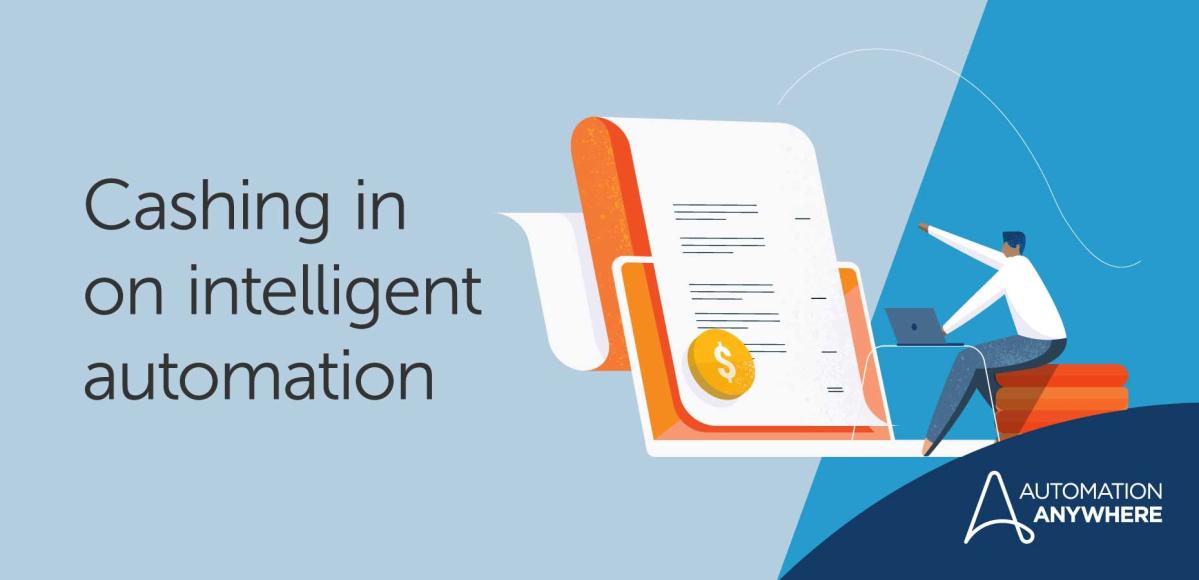- Products
Automate any process, anywhere Streamline complex, mission-critical workflows with the Agentic Process Automation System. Explore the Platform Explore the Platform
- AI System
- Build AI Agents
Automate advanced tasks with AI Agent Studio.
- Streamline workflows
Rapidly design and deploy with Automator AI.
- Process complex documents
Extract and organize data with Document Automation.
- Discover opportunities
Identify inefficiencies with Process Discovery.
- Orchestrate automations
Centralize initiatives with Automation Workspace.
- Build AI Agents
- Automation System
- Govern programs
Establish frameworks and oversight with CoE Manager.
- Automate from any app
Get AI-powered assistance with Automation Co-Pilot.
- Speed workflows with cloud
Power instant data exchange with serverless Automation Anywhere Cloud Service
- Unify systems
Connect applications and workflows with seamless integrations.
- Govern programs
- View all Products
-
- Solutions
Featured Solutions
 Google Cloud Google Cloud and Automation Anywhere empower enterprises to fast-track their AI + Automation journey. Google Cloud
Google Cloud Google Cloud and Automation Anywhere empower enterprises to fast-track their AI + Automation journey. Google Cloud Amazon Web Services Streamline workflows, reduce costs, and make automating even easier when you combine the Agentic Process Automation System with AWS Amazon Web Services
Amazon Web Services Streamline workflows, reduce costs, and make automating even easier when you combine the Agentic Process Automation System with AWS Amazon Web Services- By Industry
- By Function
- By Technology
- View all AI Solutions
-
- Resources
Get Community Edition: Start automating instantly with FREE access to full-featured automation with Cloud Community Edition.
Featured
 Named a 2024 Gartner® Magic Quadrant™ Leader for Automation. Celebrating Six Years of Recognition as a Leader. Download report Download report
Named a 2024 Gartner® Magic Quadrant™ Leader for Automation. Celebrating Six Years of Recognition as a Leader. Download report Download report - Customers
New & improved certifications
 Give yourself a competitive advantage with Automation Anywhere's industry-recognized certifications.Explore Certifications Explore Certifications
Give yourself a competitive advantage with Automation Anywhere's industry-recognized certifications.Explore Certifications Explore Certifications - Company
Get in touch with us Get help, know more, learn, ask questions, or just say Hi! Contact Us Contact Us
- Get To Know Us
- Announcements
- Society
-
Blog
The Future of Financial Services: AI and Automation
Navigate to content

FinTech is rapidly changing how we bank, invest, and spend as traditional banking institutions struggle to keep up with the pace of innovation, shifting their focus from providing conventional customer services to meeting the needs of the digital age.
Two key factors are driving the financial services industry’s major transformation: the rise of artificial intelligence (AI) and automation. New companies emerge to offer innovative solutions to the financial sector’s challenges, and AI and automation will profoundly impact the industry in the next few years.
Based on recent statistics, the global AI fintech market size might grow to 9 billion US dollars this year at a CAGR of 26% and $24 billion US dollars in 2026 at a CAGR of 28%. Read on to learn about financial services industry trends and how AI and automation are transforming the sector.
How AI will impact the financial industry
1) Automated financial advisors
Also known as “robo-advisors,” these computer programs provide financial advice with little or no human interaction. They use algorithms to create a personalized financial plan for each client based on factors such as age, investment goals, and risk tolerance.
2) Algorithmic trading
It is a form of financial trading that uses complex algorithms to make automated decisions. Banks, hedge funds, and institutional investors use this to trade stocks, bonds, foreign exchange, and other financial instruments.
3) AI-powered financial fraud detection
Financial institutions use AI to detect fraud, such as money laundering, identity theft, and credit card fraud. AI can identify patterns of fraudulent activity and flag suspicious transactions for further investigation.
4) Personal financial management tools
An increasing number of personal financial management (PFM) tools use AI to help people manage their money. These can track your spending, offer budgeting advice, and suggest where to allocate your money. In addition, some PFM tools now offer “round-up” features that automatically invest your spare change.
5) Blockchain
A blockchain is a decentralized, distributed ledger that documents financial transactions. It is tamper-proof and secure, making it an ideal platform for financial institutions. They use it to streamline processes, reduce costs, and improve security. For example, banks use blockchain to settle cross-border payments and trade finance deals.
6) Cryptocurrencies
A cryptocurrency uses cryptography to secure its transactions. Bitcoin was the first and most well-known cryptocurrency created in 2009. Governments and financial institutions do not regulate cryptocurrencies, and their value is volatile. However, some financial institutions are beginning to experiment with using them.
7) Peer-to-peer (P2P) lending
P2P lending is a financial technology that allows people to borrow and lend money without going through a traditional financial institution. Lenders can earn interest on loans, and borrowers can access funds more quickly and affordably.
The future of finance lies in AI
The future of the financial services industry is looking bright with the rise of AI and automation. These technologies will allow for more efficient and accurate transactions, freeing employees to focus on higher-value tasks. Financial institutions embracing these new technologies will be well-positioned to compete in the future.
See How Automation Anywhere Can Help.
About Automation Anywhere Staff
Get to know the Agentic Process Automation System.

For Students & Developers
Start automating instantly with FREE access to full-featured automation with Cloud Community Edition.



